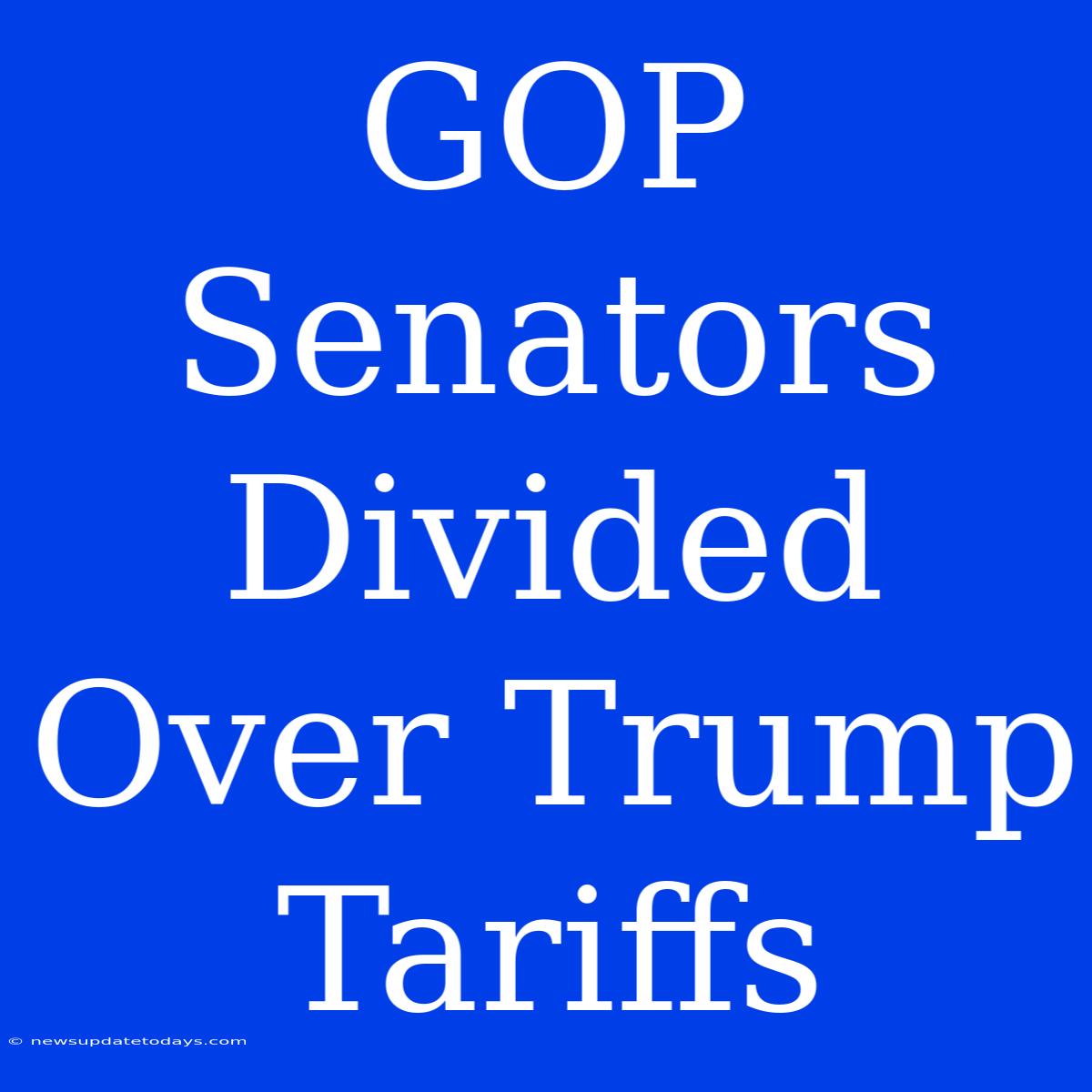GOP Senators Divided Over Trump Tariffs: A Deep Dive into the Fracturing Party
The Republican party, once a unified front on trade policy, finds itself deeply fractured over the legacy of Donald Trump's tariffs. This internal division isn't just a political squabble; it reflects a fundamental disagreement over economic strategy and the party's future direction. This article delves into the key arguments fueling this rift and examines the potential consequences for the GOP.
The Tariff Legacy: A Mixed Bag of Results
Trump's imposition of tariffs on various goods, particularly from China, was a defining feature of his presidency. While proponents claimed these measures protected American jobs and countered unfair trade practices, critics argued they harmed consumers through higher prices and stifled economic growth. The economic impact remains a subject of ongoing debate, with studies yielding conflicting results. Some sectors saw benefits, while others suffered significantly. This lack of clear-cut success has fueled the internal disagreements within the Republican party.
The Split Within the GOP: Free Market vs. Protectionist Wings
The divisions over tariffs highlight a fundamental clash within the Republican party: the tension between its traditional free-market principles and a growing protectionist wing.
Free-Market Republicans: This faction, often representing more fiscally conservative elements, emphasizes the importance of free trade, arguing that tariffs distort markets, harm consumers, and ultimately hinder economic growth. They point to the potential for retaliatory tariffs and the overall negative impact on global trade as major concerns. Key figures within this group advocate for a return to more traditional Republican trade policies.
Protectionist Republicans: This group, often aligned with Trump's populist base, believes tariffs are necessary to protect American industries and jobs from unfair competition. They emphasize national security concerns and the need to counter what they perceive as predatory trade practices by other countries. This faction tends to be more skeptical of globalization and prioritizes domestic manufacturing.
The Political Fallout: Implications for the 2024 Elections and Beyond
The ongoing debate over Trump's tariffs carries significant political weight. The issue could play a crucial role in the upcoming 2024 Republican primaries and the general election. Candidates will have to navigate this complex issue carefully, balancing the competing demands of different factions within the party and appealing to a broader electorate. Failure to address this division effectively could lead to further fragmentation and weaken the party's overall standing.
Beyond the Rhetoric: Finding Common Ground?
While the chasm between the two factions seems wide, some areas for potential compromise might exist. For instance, there might be bipartisan support for targeted tariffs addressing specific unfair trade practices, rather than broad-based levies. However, finding common ground requires a willingness to engage in constructive dialogue and acknowledge the legitimate concerns of all sides.
Conclusion: The Future of Republican Trade Policy Remains Uncertain
The Republican party's internal struggle over Trump's tariffs is more than just a political squabble; it reflects a deeper ideological rift that will likely shape the party's future trajectory. The outcome of this internal debate will significantly influence the economic and political landscape of the United States for years to come. The resolution – or lack thereof – will be a key indicator of the GOP's ability to adapt to the changing economic and political realities of the 21st century.

